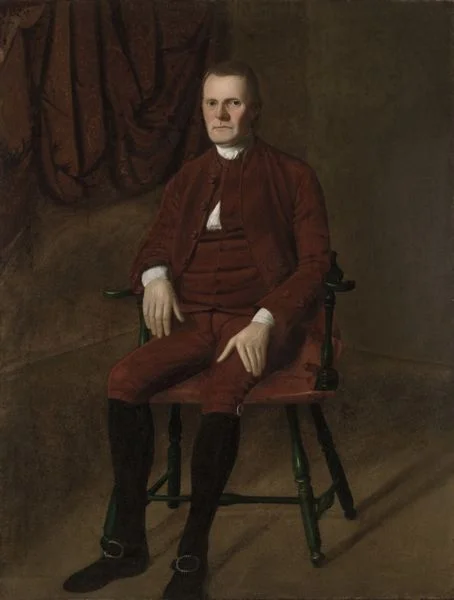Oliver Ellsworth Frames American Justice
Oliver Ellsworth was a Delegate to the Continental Congress and Constitutional Convention.
He was an original member of the US Senate and basically organised the nation’s judicial system single-handedly.
Then he went on to be the third Chief Justice of the United States.
This is Part One of a series on Ellsworth’s unbelievable contribution to the American Founding. Check back for Part Two tomorrow.
Oliver Ellsworth
Oliver Ellsworth is perhaps the most important Founder to not sign any of the Major Documents of the American Revolution.
Born into moderate wealth in Connecticut, Ellsworth made is way up to the position of State Attorney for his home county when the Revolutionary War began.
An outspoken Patriot, Oliver was elected to the Continental Congress in 1777 and would remain with that body for the duration of the war.
Continental Congress
During his time in the Continental Congress, Oliver Ellsworth served on several of the most important Committees. These include the Committee of the Marine (which oversaw the first Navy), the Committee of Appeals (which oversaw the first federal legal cases), and the Board of Treasury (which controlled the young nation’s finances).
When Ellsworth returned home between sessions of Congress, he continued to climb the political ladder in Connecticut. He played an ever-expanding role in the transition from colony to statehood.
After the Revolutionary War concluded, Ellsworth returned home and was chosen as a Justice on Connecticut’s first attempt at what today is the State Supreme Court.
Constitutional Convention
In 1787, Ellsworth was selected as a Delegate to the Constitutional Convention.
Although Roger Sherman receives most of the credit, Oliver Ellsworth played a major part in crafting the Great Compromise. Also known as the Connecticut Compromise, these men found common ground and made peace between Delegates from the Big States and Small States over a major point of contention during the Convention: representation.
The Big States wanted representation based on population while the Small States wanted representation to be equal. In the end, the Great Compromise granted proportional representation in the House of Representatives and equal representation in the Senate…and the modern incarnation of the United States Congress was born.
Committee of Detail
Halfway through the summer, Ellsworth was selected with four other Delegates to sit on the First Committee of Detail.
This Committee spent two weeks writing the first draft of the Constitution while the Congress took a hiatus. This work would be turned into a second draft, then finalized into the laws which the United States are based on today.
In late August, Oliver returned home to Connecticut. He left just three weeks before the Constitution was signed and, therefore, does not have his name on that document.
He was a Framer, but not a Signer.
Judiciary Act of 1790
Ellsworth returned home and led the fight for ratification of the Constitution. Thanks in great part to his hard work, Connecticut became the fifth State to ratify the Federal Government less than four months later.
Now clearly a political leader, both within his State and on the national stage, Oliver Ellsworth was elected as an inaugural member of the United States Senate.
Ellsworth’s most important legacy was created while in the Senate as he was the primary author of the Judiciary Act of 1790. This created the Federal Judicial Branch of the US Government.
The Judiciary Act set the basis for how many District Judges President Washington could select as well as legalizing Judicial Review. Judicial Review gave the Federal Government the ability to declare State laws unconstitutional.
Check back tomorrow for the second part of Ellsworth’s life. Until then try these related articles:
Chief Justice John Rutledge Tries to Kill Himself
John Jay - The First Chief Justice
David Brearly and the Committee on Postponed Parts
Want to get fun American Revolution articles straight to your inbox every morning?
Subscribe to my email list here.
You can also support this site on Patreon by clicking here.
Want to read about Ellsworth’s amazingly important life?
‘Founding Federalist’ goes in to much greater detail than I have here and really demonstrates how important Ellsworth was.
If you’d like a precious copy for your very own you can through the Amazon affiliate link below (you’ll support this site, but don’t worry, Amazon pays me while your price stays the same).





